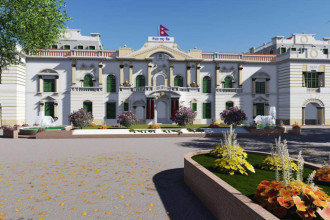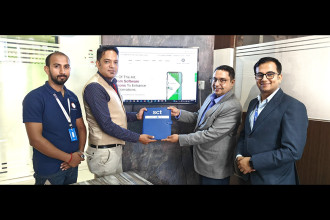
KATHMANDU: Dr Prerana Shrestha, a Nepali neuroscientist based in the USA, has received a grant of $2.2 million (approximately Rs 292.5 million) from the National Institute of Mental Health (NIMH) to research psychological trauma.
Dr Shrestha is Assistant Professor of Neuroscience at Stony Brook University's Department of Neurobiology and Behavior in New York.
She regards this grant as recognition of her work.
The question arises: how long do childhood events or accidents remain in the brain? Could they lead to depression later in life? 'Post Traumatic Stress Disorder' (PTSD) or psychological trauma after an accident can persist as a lifelong issue.
Microscopic brain cells store memories, and the proteins they produce maintain brain activity. This topic may not interest everyone. Moreover, how do these brain cells react within the protein synthesis machinery? The complexity increases. Dr Shrestha has received the grant to study these issues.
Her team will explore why certain subjects persist in the brain over time. Using a method known as the 'Muscular Method,' they will attach tools to mice, which have a similar temperament to humans. The study, expected to conclude by October 2027, aims to develop treatment approaches for future individuals facing similar challenges.
The American government considers mental health a vital aspect of citizens' well-being. Approximately 3.6% of adults experience psychological trauma due to incidents or accidents throughout their lives. In response, NIMH has prioritised programmes to investigate how to enhance mental health resilience. NIMH aims to simplify mental health by reducing the impact of emotional arousal in the brain.
Dr Shrestha's research focuses on the persistence of emotional memories within the human brain. She explains, "Our research focuses on understanding the impact of accidents on individuals and their reactions. Such incidents can lead to lifelong psychological trauma. Our team will study how memory-retaining cells in the brains of individuals affected by psychological trauma function and gather essential information." She adds, "This grant will reveal discoveries from our research."
Prerana Shrestha's journey to the USA is noteworthy. In 1999, she had the option to study MBBS in the USA or another country. However, she chose to go to the USA on a full scholarship to study Biochemistry. To meet the prerequisite for medical college enrollment in the USA (a four-year course), she took preparatory classes.
Upon arriving in the USA, her interest shifted towards research. In the summer of 2002, she passed an exam in the cell biology lab at Harvard University, igniting her passion for scientific research. Subsequently, she embarked on a doctoral programme to deepen her understanding of the subject matter and explore the human brain.
(With inputs from RSS)






-1731999666.jpeg)

